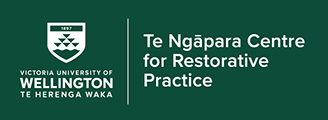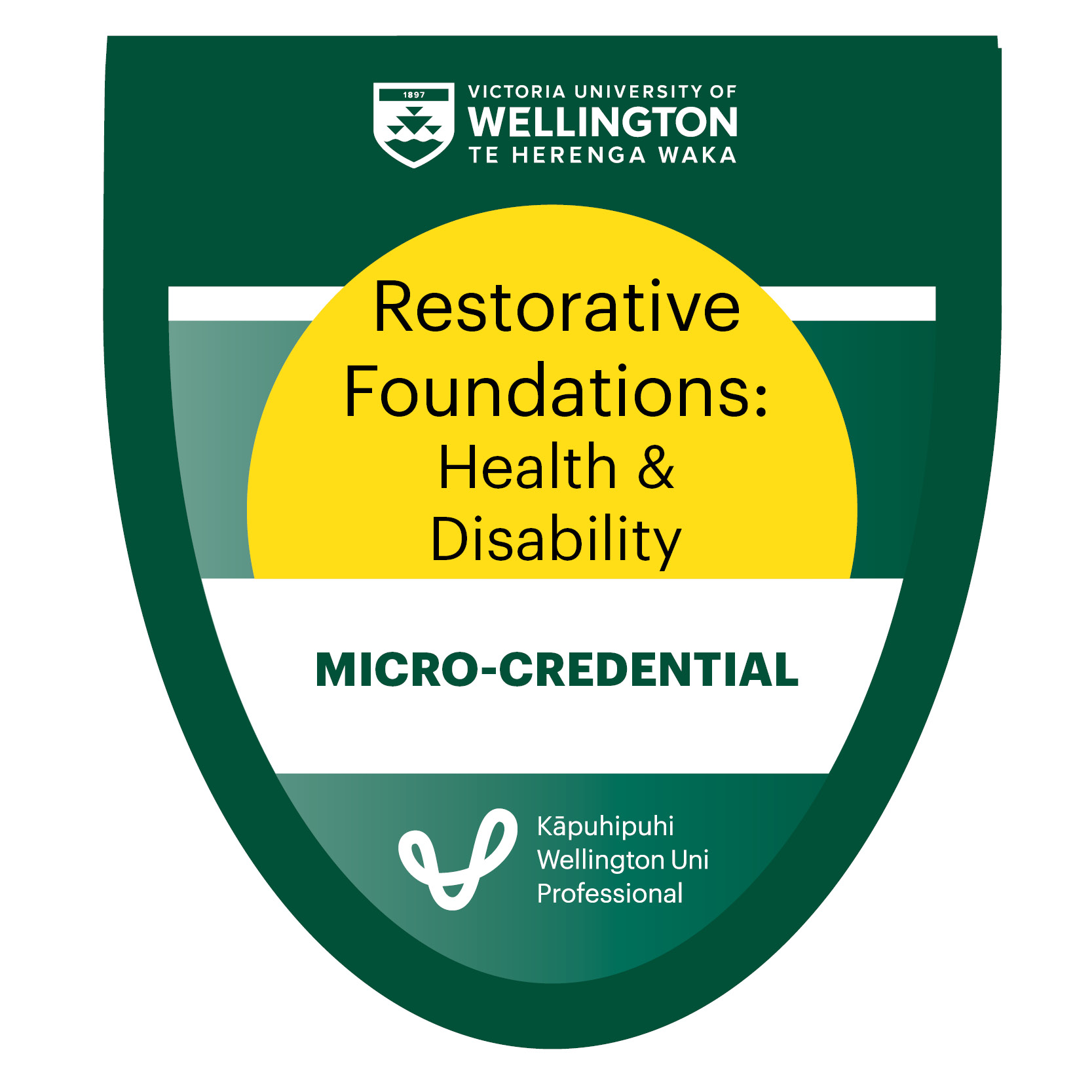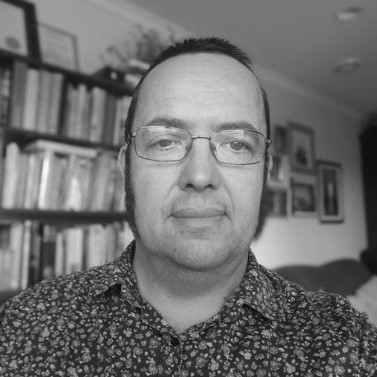Restorative Foundations: Health and Disability
Theory, values and principles of restorative practice in a health system context and a Tiriti o Waitangi framework.

Course overview
Te tiro whakamuri kia haere whakamua
We will look back to what has occurred in the past to gain the wisdom to move forward into our future.
In this micro-credential course, you will learn about the theory, values, and principles of restorative practices within the health system context and a Tiriti o Waitangi framework. You will consider how restorative practice and hohou te rongo (peacemaking from a Māori worldview) might be applied in your own health setting.
This micro-credential (5 points) has been developed by Te Ngāpara Centre for Restorative Practice, Victoria University of Wellington in partnership with the Health Quality & Safety Commission and the National Collaborative for Restorative Initiatives in Health.
In partnership with



What you'll learn
On completion of the course, you will be able to:
- Critically analyse the systems view of health care harm and how harm is currently responded to within Aotearoa New Zealand.
- Evaluate the relational values, principles and practices that underpin restorative practice and hohou te rongo.
- Critically reflect on the potential use of restorative practice and hohou te rongo in your own context.
Course modules
You will gain an appreciation of:
- The minimalist and maximalist continuum of restorative approaches (ranging from restorative practice ‘tools’ to the social movement and ‘restorative worldview’).
- How restorative approaches differ from dominant approaches in safety science (e.g. just culture) and conventional dispute or legal justice systems.
- Empirical evidence for the effectiveness and impact of restorative practices in health.
- What cultural safety and an authentic Tiriti partnership might look like in your context.
- Proactive and reactive restorative approaches and their applications within health systems, and Aotearoa New Zealand in particular.
- Foundational ‘restorative practice’ skills e.g., restorative language, conversations, and proactive Circle practices.
Further Information
Format
This course is delivered fully online through a combination of live Zoom sessions and self-paced learning activities. Live sessions are interactive, combining presentations, group discussion, and practical exercises. You’ll have access to an online learning platform for readings, activities, and resources. Group size is limited to ensure active participation.
This micro-credential is total of approximately 50 hours of learning made up of:
- 1 x 2-hour webinar
- 2 x 4-hour live online workshops
- Self-paced learning activities
- Self-study and assessment tasks
Workload and Assessment
This micro-credential involves approximately 50 hours of total learning, including self-paced online modules, live sessions, and application tasks.
Assessment is comprised of:
- Two reflections (250-words each) 40%
- A final presentation of a case related to your everyday work (3 minutes, with 3 PowerPoint slides, and 3 minutes of Q & A and feedback from classmates) 60%
All assessment requirements must be completed to pass and earn credit.
What You'll Receive
This course is a university-approved micro-credential worth 5 NZQA Level 7 credits, assessed to meet academic and industry standards. Upon successful completion, you will receive:
- A digital badge
- A digital certificate
- Academic credit recorded on your official Victoria University of Wellington academic transcript
All credentials include the total CPD/PLD hours completed.
University credits achieved may be used through ‘credit transfer’ to stack towards future qualifications. These digital credentials are portable, verifiable, and designed to support both your current role and long-term career advancement.

Scholarship information
Te Ngāpara Centre for Restorative Practice and Kāpuhipuhi Wellington Uni-Professional fund a small number of scholarship places in each cohort. Available scholarships include a 50% discount or fully funding your course fee. Scholarships are available to people working in and with the health sector who have no or limited access to professional development funding. If you would like to be considered for a scholarship, you will need to provide a letter that outlines your role in the health sector and why you want to attend. You will be asked to provide a letter of support from your employer which includes a statement that you have no access to funding or states that they will contribute 50% of the course fee.
Information about how to apply is available by emailing us at profdev@vuw.ac.nz
Please use “Scholarship Request” in the subject line.
What is a micro-credential?
A micro-credential is a formal credential that acknowledges specific skills and knowledge gained through learning programme or activity. These credentials are assessed and meet industry standards, allowing you to demonstrate mastery in particular areas. Our micro-credentials carry University credit at defined level (eg undergraduate or postgraduate) and credit may be used towards further learning. Micro-credentials are designed to be stackable, creating a pathway to further qualifications or career advancement.
Upcoming Courses & Delivery Options
20 Apr 2026 | Online
Duration: 6 weeks
$NZD 995
excl. GST
10 Aug 2026 | Online
Duration: 6 weeks
$NZD 995
excl. GST
Can’t make these dates or want a private course?







